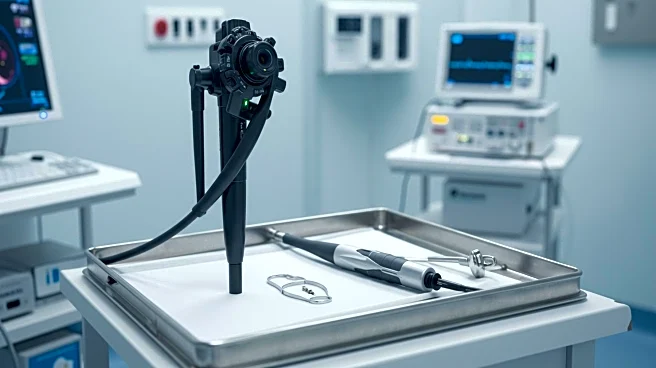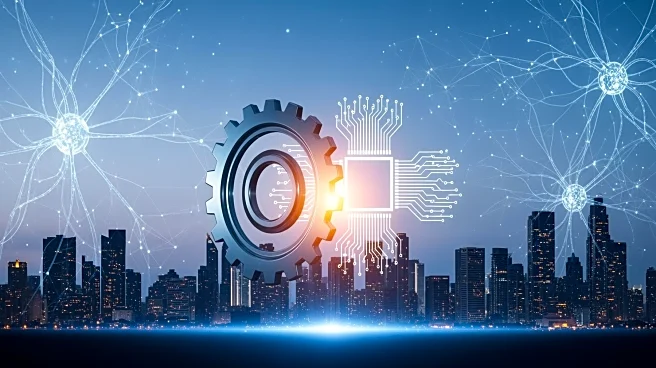What is the story about?
What's Happening?
A recent study published in The Lancet Gastroenterology & Hepatology has revealed that doctors who frequently rely on artificial intelligence (AI) for detecting cancer during colonoscopy procedures may experience a decline in their detection skills when AI is not in use. The research involved doctors from four endoscopy centers in Poland, part of a trial program assessing AI's role in cancer prevention. The study found that the detection rate of these doctors was approximately six percentage points lower when AI was not utilized. This raises concerns about the potential de-skilling effect of AI in healthcare, particularly in procedures where human expertise is crucial.
Why It's Important?
The findings of this study highlight a significant issue in the integration of AI into healthcare practices. While AI has the potential to enhance diagnostic accuracy and efficiency, its over-reliance may lead to a reduction in essential skills among medical professionals. This could impact patient outcomes, as doctors may become less proficient in procedures without AI assistance. The study prompts a reevaluation of how AI should be implemented in medical settings to ensure it complements rather than diminishes human expertise. Stakeholders in the healthcare industry, including policymakers and medical institutions, must consider these implications when developing AI integration strategies.
What's Next?
The study's results may lead to further investigations into the long-term effects of AI reliance in medical procedures. Healthcare institutions might need to implement training programs that balance AI use with skill retention among doctors. Additionally, there could be discussions on setting guidelines for AI usage in medical diagnostics to prevent potential de-skilling. As AI continues to evolve, ongoing research and policy adjustments will be crucial to maximize its benefits while mitigating risks.
Beyond the Headlines
The ethical dimension of AI in healthcare is becoming increasingly relevant. The potential for AI to inadvertently reduce human skills raises questions about the responsibility of technology developers and healthcare providers in ensuring patient safety. Moreover, the cultural shift towards AI reliance may affect the traditional doctor-patient relationship, where human judgment and interaction are valued. These broader implications necessitate a careful approach to AI integration, balancing technological advancement with ethical considerations.














